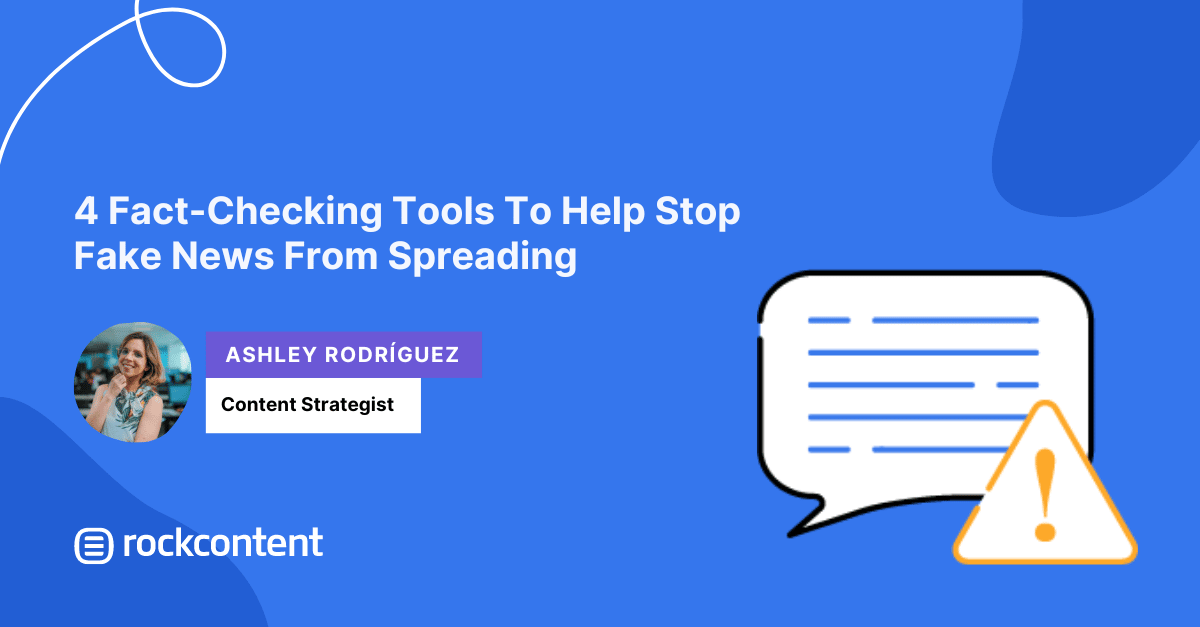No products in the cart.
Content Marketing
4 Fact-Checking Tools To Assist Cease Fake News From Spreading
You might remember how during the pandemic of 2020, some people believed that the 5G technology was the thing that was causing Covid. The problem with fake news is something we were warned about even before 2019.
Many actions have been taken by the media and governments to stop the spreading of false information. So, there are many tools to help fight it. However, only some people use them. This article will teach you the best tools to improve your fact-checking and uncover fake news like a professional.
Today, more than ever it is essential to prevent misinformation from spreading. We had the midterms election in the US this week and the second round of presidential elections in Brazil two weeks ago, and a report showed that social media was losing the battle against misinformation.
Some social media are already updating their policies to prevent users from being misled about voting and elections, but we need to do our part as marketers and content creators.
How long has fake news been with us?
Fake news has been on the internet for a while. During the US presidential elections of 2016, people started talking about this topic because of the number of false stories that were spreading in social media like Facebook, Twitter and Instagram.
But who is generating the fake news? Sometimes people with bad intentions or working for some extreme ideological party, but can also be trolls and bots.
For example, according to CITS, in 2017 there were 23 million bots on Twitter (around 8.5% of all accounts), 140 million bots on Facebook (up to 5.5% of accounts) and around 27 million bots on Instagram (8.2% of the accounts).
Why is it important to double-check what you share?
The most obvious problem with fake news is that it can confuse people about important issues, such as public health, social problems, and elections. It polarizes even more and creates a feeling of panic that impacts our democracy and the decisions of ordinary people.
Double checking the information we read is important because it:
- Prevents you from spreading hoaxes;
- Reduces the discomfort that a conspiracy theory can produce;
- Shares information in a more ethical and responsible way;
- Helps you to work on your own biases and encourages learning about the two sides of the same story.
For Americans, made-up information is becoming a relevant problem, even bigger than climate change. According to Pew Research Center 50% of the respondents say that is a very big problem.
How does it affect brands? So let’s pretend you have a product about some essential oils, and you received a review that says that your product can cure “x” or “y” diseases. You, as the owner of the product, know that is impossible. What would you do? Are you letting that false information spread or making it clear that your oils don’t have that attribute?
Since at rock content we try to make marketing better, we understand how important it is to share information in the most ethical way possible.
4 Fact Checking Tools You Need To Know!
What is the easiest way to research something nowadays? Clearly, just Google it. However, that is not enough. That is why we created a list of tools that can help you to uncover false information, half-truth, or biases.
1. InVid
Videos can also be manipulated. Trolls can cut a video, edit and publish it without a certain context just to confuse others. The Chrome extension InVid allows you to analyze videos, tweets, and data and understand them better.
2. Duplicate checker
Another of the tactics of fake newsmakers is to use an image in a time and context that it doesn’t belong. For example, they can use an image of something that happened in India and make it look like it happened in Mexico. duplicate checker is a reverse image researcher; it helps you identify an image’s real source.
3. Ground News
Ideological bias is also something that helps to spread misinformation. Ground News helps you identify the type of coverage a piece of news receives. It is also available as a mobile app.
4. Fact checker NGO
To battle hoaxes and false claims, many independent journalists have created their own NGOs, websites and so on. A good example of this is Factcheck.org that is specialized in US politics. There are other organizations, like the International Fact Checking Network that offers a lot of resources and training for journalists and human rights defenders.
And don’t forget: Check the original source!
Sources are key when verifying if some claims are actually true. Who is saying this? If they are citing an organization, check what the official site says. Also, try to verify if other websites or journals are covering the story in the same way, because they can’t all have the same biases.
On social media, there is so much information that it is hard to identify what is true and what is a hoax. We can’t control everything that appears on the internet, but we can control what we are publishing and what we want to read.
We are still fighting to make social media a safe place for everyone, and we can do our part if we put our efforts into sharing information responsibly.

